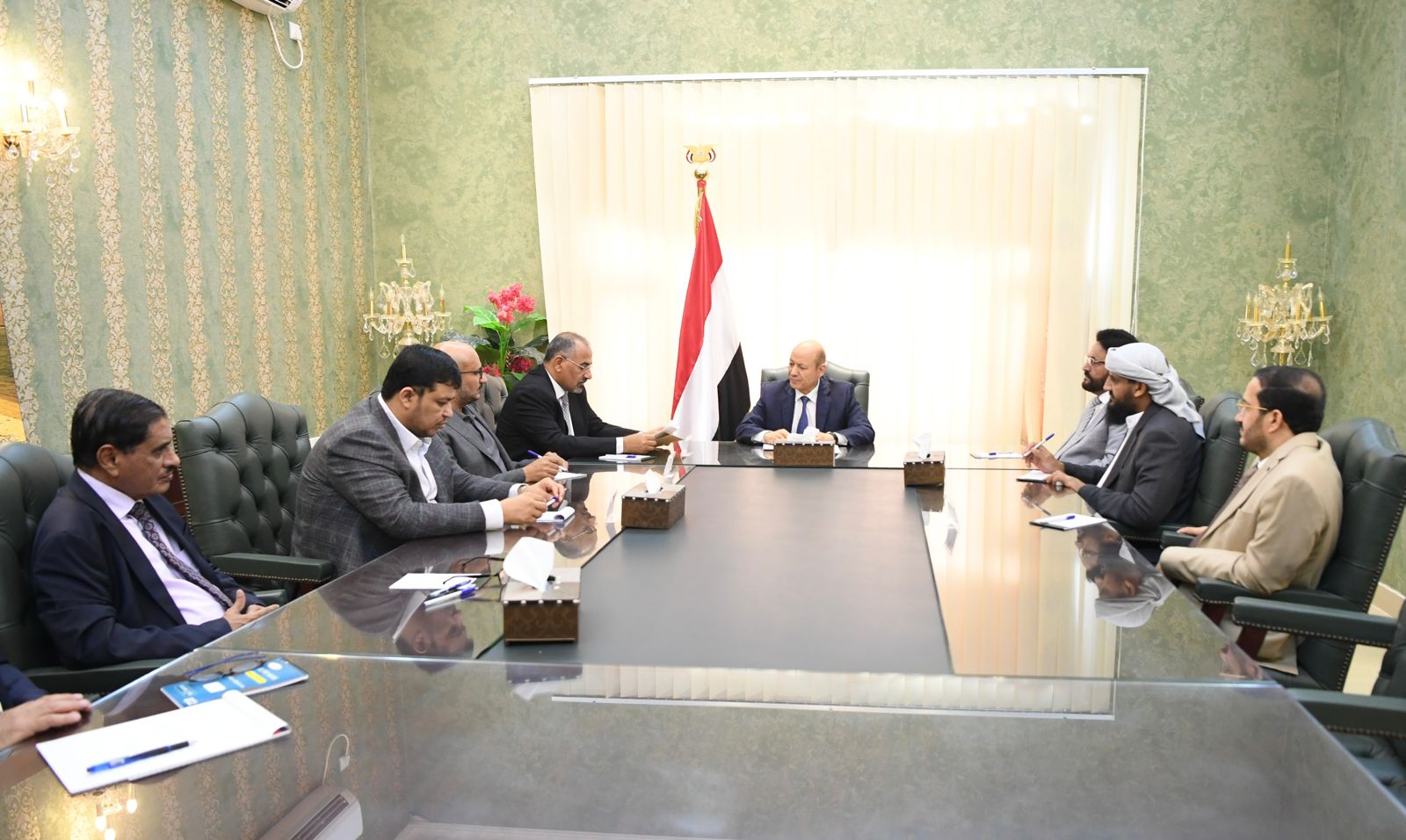The Presidential Leadership Council held an extraordinary meeting on Friday via video conferencing, chaired by President Dr. Rashad Muhammad Al-Alimi, head of the council, and attended by all its members; Aidaroos Al-Zubaidi, Sultan Al-Arada, Tariq Salih, Abdul-Rahman Al-Mahrami, Dr. Abdallah Al-Alimi, Uthman Majli, and Faraj Al-Bahsani, to discuss developments in the economic, living, and service conditions in Yemen.
The Council addressed the changes related to exchange rate fluctuations, electricity supply, and measures to achieve economic and service stability, as well as to alleviate the humanitarian suffering exacerbated by the Houthis’ attacks on oil facilities and international shipping routes.
According to the official website of President Al-Alimi, the Council renewed the state’s commitment to fulfilling its responsibilities towards citizens, including ensuring regular payment of salaries, improving public revenue, and moving forward with comprehensive economic, administrative, and financial reforms supported by brothers and friends.
The Council affirmed its full support for the decisions of the Central Bank of Yemen, its measures, and policies aimed at protecting the banking system, ending monetary distortions, controlling inflation and the national currency, adopting governance principles, strengthening oversight of banks and external banking operations, and responding to disclosure standards and compliance with anti-money laundering and terrorist financing requirements.
The Council reassured the banking sector and depositors of the importance of these measures, which only require banks in Houthi-controlled areas to transfer the main operating departments of banks, including information systems, data centers, international operations management, and compliance management, outside of Houthi control, in addition to requiring them to hold their general assembly meetings outside of Houthi-controlled areas, to enable the Central Bank to carry out its constitutional and legal duties in managing monetary policy, strengthening the position of the national currency, and protecting depositors’ funds from the risk of confiscation and freezing. In contrast, those banks continue to deal with a group designated as a terrorist organization and implement its instructions in violation of banking regulations and legal provisions.
The Council clarified that it has been keen since its formation to provide the necessary political support for the management of the Central Bank of Yemen in its national battle against the arbitrary actions of the Houthis and to facilitate the exercise of its full powers under the Central Bank Law and its independence.
It noted the report of the Central Bank regarding the arbitrary and destructive practices and measures undertaken by the Houthi group against the banking and financial sector, exploiting the presence of most of the main bank centers in the city of Sana’a, which is under their control by force.
The violations committed by the Houthi group, according to the report, included more than 20 arbitrary measures, including complicating the working environment for banks and financial institutions, restricting their banking activities, preventing the circulation of new denominations of the legal national currency, seizing a large part of banks’ cash, supplying it to the group’s accounts, and using it as one of the sources of support for its war effort, without regard for the impact on banks’ operations and their ability to meet their commitments, in addition to placing them under the threat of international sanctions.
The Presidential Leadership Council emphasized that forcing banks and financial institutions to relocate their operations to the temporary capital, Aden, was necessary in the face of serious threats and violations of banking practices and their significant economic and humanitarian repercussions. They urged the continuation of the firm economic policy against the Houthis, alongside a highly flexible approach towards stakeholders, and the creation of favorable conditions for banks to operate from Aden, thus strengthening the legal standing of the state.

